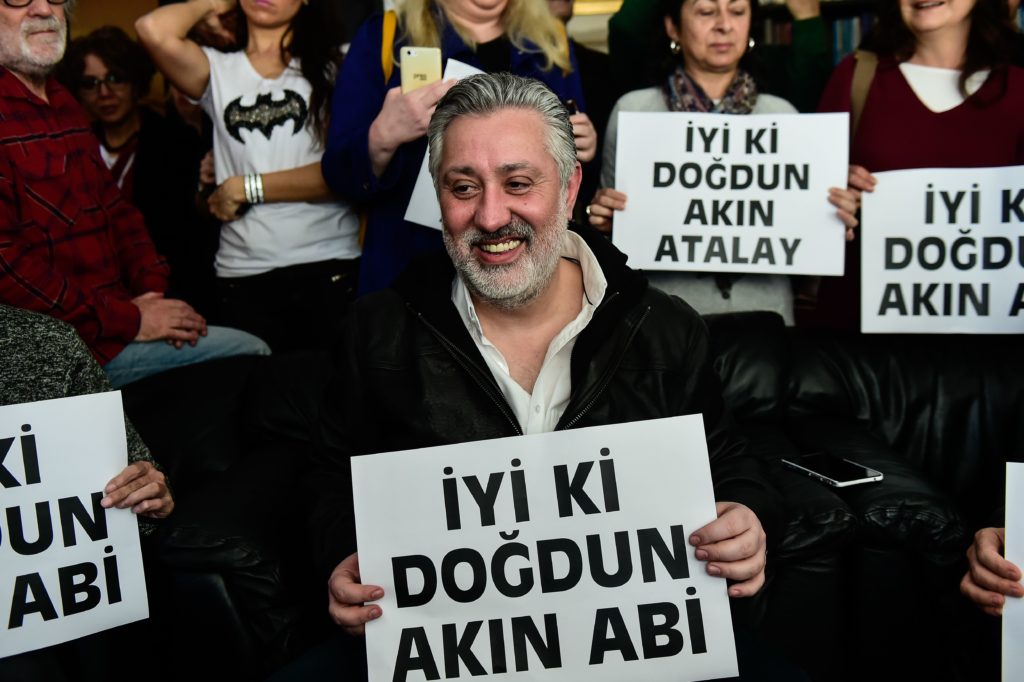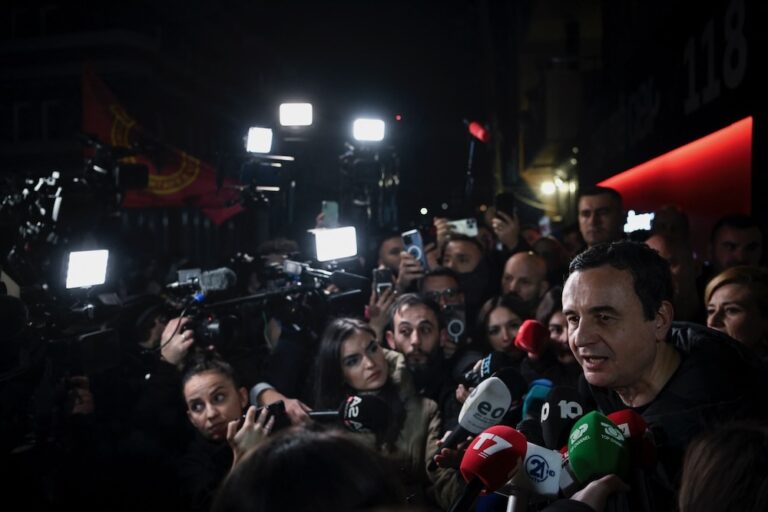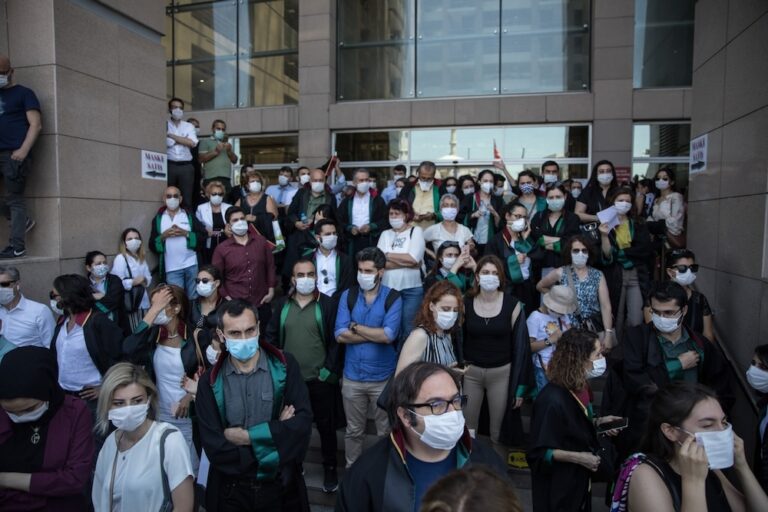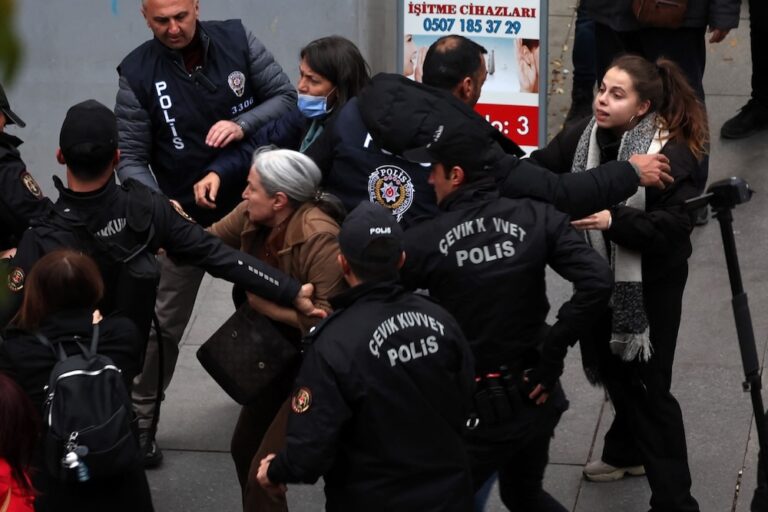The European Court of Human Rights ruled that the staff's rights to liberty and security and freedom of expression had been violated. It ordered Turkey to pay each applicant 1,600 euros in non-pecuniary damages.
This statement was originally published on expressioninterrupted.com on 10 November 2020.
Finding a violation of the right to liberty and security and freedom of expression, Court finds no violation of Article 18 in the case of Murat Sabuncu and nine other former ‘Cumhuriyet’ executives and columnists
The European Court of Human Rights (ECtHR) ruled on 10 November 2020 that the pre-trial detention of former Cumhuriyet journalists and executives as part of the “Cumhuriyet trial” violated their right to liberty and security and freedom of expression.
The Second Section of the Court held unanimously that Articles 5/1 and 10 of the European Convention on Human Rights (ECHR) had been violated.
The Court ruled unanimously that there had been “no violation” of Article 5/4 (right to speedy review of the lawfulness of detention), saying periods of seven to 16 months were “justified by the exceptional caseload of the Constitutional Court following the declaration of the state of emergency.”
The Court ruled by a majority that there had been “no violation” of Article 18 (limitation on use of restrictions on rights), saying “existence of an ulterior purpose was not demonstrated.”
The Court ordered that Turkey pay 16,000 euros to each of the applicants in non-pecuniary damages.
The application on behalf of Murat Sabuncu and Cumhuriyet’s columnists and executives Önder Çelik, Turhan Günay, Akın Atalay, Mustafa Kemal Güngör, Kadri Gürsel, Hakan Kara, Musa Kart, Güray Öz and Bülent Utku was filed with the European Court on 2 March 2017.
The Court held that:
– the decisions of the domestic courts ordering the applicants’ initial and continued pre-trial detention had been based on mere suspicion that did not reach the required level of reasonableness;
– the acts for which the applicants had been held criminally responsible came within the scope of public debate on facts and events that were already known, amounted to the exercise of Convention freedoms, and did not support or advocate the use of violence in the political sphere or indicate any wish on the applicants’ part to contribute to the illegal objectives of terrorist organisations, namely to use violence and terror for political ends;
– the applicants’ pre-trial detention in the context of the criminal proceedings against them, for offences carrying a heavy penalty and directly linked to their work as journalists, had amounted to an actual and effective constraint and constituted “interference” with the exercise of their right to freedom of expression;
– the interference with the exercise of the applicants’ right to freedom of expression had not been prescribed by law, as Article 100 of the Turkish Code of Criminal Procedure required the existence of factual evidence giving rise to strong suspicion that the person concerned had committed an offence, which had not been the case here.
The full text of the Sabuncu and Others v. Turkey judgment can be accessed here.
Cumhuriyet trial
Murat Sabuncu, one of the founders of Punto24 Platform for Independent Journalism (P24), who was then editor-in-chief of Cumhuriyet, was arrested in October 2016 along with nearly a dozen staff members and members of the executive board of the Cumhuriyet Foundation, which publishes the newspaper.
On 5 November 2016, Sabuncu and eight other Cumhuriyet journalists and executives were jailed pending trial on the charge of “aiding an armed terrorist organization without being its member.” The newspaper’s editorial policy was held as evidence against them.
At the final hearing of the “Cumhuriyet trial,” in April 2018, the court convicted 14 Cumhuriyet staff members, including Sabuncu, of “aiding a terrorist organization without being its member.”
In September 2019, the Supreme Court of Appeals overturned a majority of the convictions in the trial and ruled that Murat Sabuncu, Akın Atalay, Orhan Erinç, Aydın Engin and Hikmet Çetinkaya should be acquitted.
At the retrial of the case, the trial court acquitted Kadri Gürsel but ruled against the Supreme Court of Appeals judgment concerning the rest of the defendants: Murat Sabuncu, Akın Atalay, Ahmet Şık, Aydın Engin, Bülent Utku, Güray Öz, Hakan Kara, Musa Kart, Hikmet Çetinkaya, Orhan Erinç, Mustafa Kemal Güngör and Önder Çelik. The court convicted all 12 once again of the initial charge against them. The case file is currently pending before the Supreme Court of Appeals.



